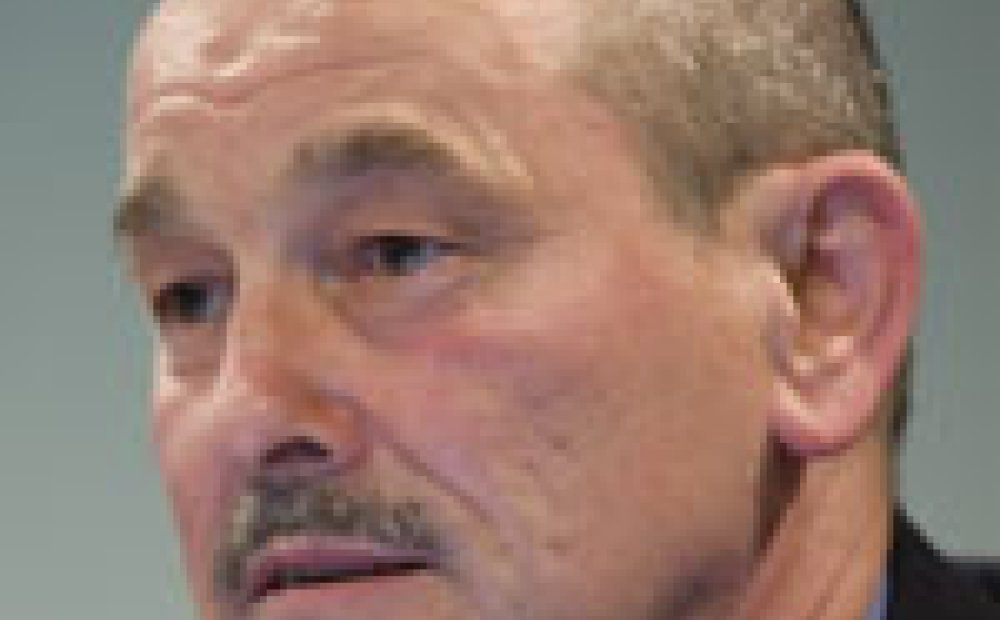Truman's Campaign of Truth and Canada's Cultural Cold War

In offering a reason why scholars should study culture, Paul Hjartarson suggested that countries use culture as a weapon during times of war. The discussion, hosted jointly by the Canada Institute and the History and Public Policy Program, focused specifically on how the Cold War affected and shaped Canadian culture from 1945 to 1965. Frank Ninkovich joined Hjartarson on the panel and provided a conceptual background on the topic of cultural diplomacy.
Canadian Culture in the Shadow of the Bomb
Hjartarson began the discussion by expressing his dismay at Canadian Prime Minister Stephen Harper's 2009 cuts to culture and arts programs, and his disagreement with Harper's belief that culture "is not of interest to the average Canadian." On the contrary, Hjartarson views culture as not only an essential piece of Canadian identity, but also a tool that should be supported and employed by the government. And while some scholars have argued that English Canadian culture has its origin in the years after World War Two, Hjartarson explained that a unique Canadian culture was in existence long before the mid-twentieth century.
However, the Cold War forced Canadian culture to be reconfigured, and as Hjartarson said, the key document to be studied from this period is the Royal Commission on National Development in the Arts, Letters and Sciences, better known as the Massey Commission. Hjartarson explained that the 1949 study came to two conclusions: first, that culture was a provincial, not federal responsibility; and second, that Canadian culture was becoming less connected to Britain and more integrated with the United States. Those involved with the Massey Commission, such as Lester Pearson and Louis St. Laurent, expressed their hesitation with the far-reaching implications of this shift in power, and thus suggested the continuation of state-owned radio and television, the Canadian Broadcasting Corporation, and state funding for the arts.
Hjartarson said that part of the reason why there was an initial lack of reception to the Massey Commission's findings was because it was released at a time when the "bomb was more important than Bach." Despite being published in a period that was preoccupied with defense and security issues, the study persuaded many that Canada's culture was something to be "defended," primarily from invasion by its southern neighbor.
What Are Cultural Relations?
The problem with culture, Ninkovich explained, is that very few people know what it is or what it does. Culture is a concept so hard to define that some question its existence, and why some policymakers continually question the value of government funded cultural programs. During the Cold War, cultural programs were justified as part of the "fight against communism." Both the United States and Canada used culture as a weapon during the Cold War, via Hollywood films, documentaries, radio broadcasts, and psychological programs such as President Truman's overt peacetime propaganda offensive against the Soviets, the "Campaign for Truth." Yet, as Ninkovich explained, since the end of the Cold War and the fall of communism, scrutiny of cultural programs in foreign policy has only increased.
Today, the dispute continues whether so-called "cultural relations" are crucial or a waste of scholars' time. Ninkovich maintained that cultural programs and diplomacy can be instrumental and their results are generally beneficial to nations. Early scholars sought to keep cultural institutions untainted by making them independent of political influence and objectives. Ninkovich said that it took him 30 years to conclude that it is impossible and ineffective to put a wall between cultural policy and foreign policy because "culture needs power" to be successful. In response to those who question the merit of culture, Ninkovich reminded the audience that uncertainty also exists in hard power, as he jokingly asked, "Where were those weapons of mass destruction?"
Drafted by Laura Pedro, Program Intern, Canada Institute
David Biette, Director, Canada Institute
202-691-4270
Hosted By

Canada Institute
The mission of the Wilson Center's Canada Institute is to raise the level of knowledge of Canada in the United States, particularly within the Washington, DC policy community. Research projects, initiatives, podcasts, and publications cover contemporary Canada, US-Canadian relations, North American political economy, and Canada's global role as it intersects with US national interests. Read more


Cold War International History Project
The Cold War International History Project supports the full and prompt release of historical materials by governments on all sides of the Cold War. Read more


History and Public Policy Program
A leader in making key foreign policy records accessible and fostering informed scholarship, analysis, and discussion on international affairs, past and present. Read more
